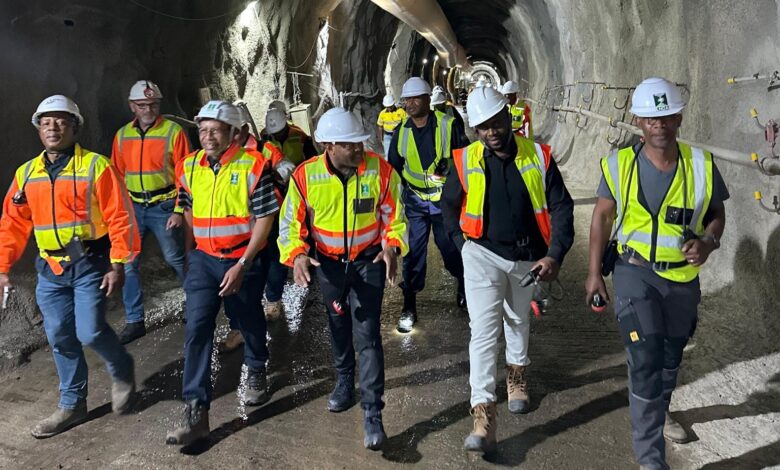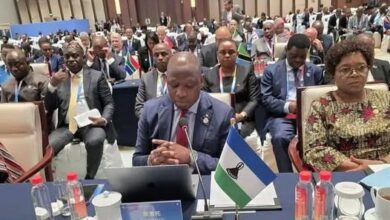LHDA Suspends Polihali Transfer Tunnel Work Over Environmental Non-Compliance

MASERU – The Lesotho Highlands Development Authority (LHDA) has announced the continued suspension of work on the Polihali Transfer Tunnel, citing persistent concerns over the contractor’s failure to comply with critical environmental regulations.
Kopano Ke Matla (KKM), the contractor overseeing the construction of the tunnel, was formally instructed to cease operations on May 5, 2025. This decisive action follows a series of unheeded warnings and official notices concerning non-compliance—especially in the management and treatment of wastewater generated during construction activities.
In an official statement released by the LHDA, the authority confirmed that despite sustained engagements involving the supervising engineer, MS&C, and the contractor, the issues remain unresolved. “The LHDA continues to work constructively with the contractor to close the compliance gaps,” the statement read. “The matter is being treated with the highest urgency. However, the suspension will remain in place until there is verified and acceptable progress.”
The Polihali Transfer Tunnel is a critical component of Phase II of the Lesotho Highlands Water Project (LHWP), which is a bi-national initiative between Lesotho and South Africa. The tunnel is designed to channel water from the Polihali Dam to the Katse Dam, ultimately supplying water to South Africa while generating hydropower and creating development opportunities in Lesotho.
However, the LHDA has reiterated that no development will come at the expense of environmental sustainability or community welfare. “Our commitment to upholding environmental protection, regulatory compliance, and community safety is non-negotiable and remains central to the successful delivery of the LHWP,” the authority stated.
Environmental experts have applauded the LHDA for taking a firm stance, noting that wastewater mismanagement could have long-term negative impacts on local ecosystems and the health of surrounding communities. Community stakeholders in the Mokhotlong district, where the project is based, have expressed concern in recent months about environmental risks and transparency in project implementation.
The LHDA has assured the public and its partners that all necessary steps are being taken to resolve the matter swiftly and responsibly. A compliance review and independent environmental audit are expected to follow before any decision to resume construction is made.
As the suspension continues, focus now turns to how quickly and effectively KKM can rectify the issues raised, and whether the project can get back on track without compromising the rigorous environmental standards that underpin the LHWP.
This latest development underscores the increasing importance of environmental accountability in large-scale infrastructure projects—not just in Lesotho, but across the Southern African region.
Join 'Lesotho News' WhatsApp Channel
Get breaking Lesotho news — delivered directly to your WhatsApp.
CLICK HERE TO JOIN



